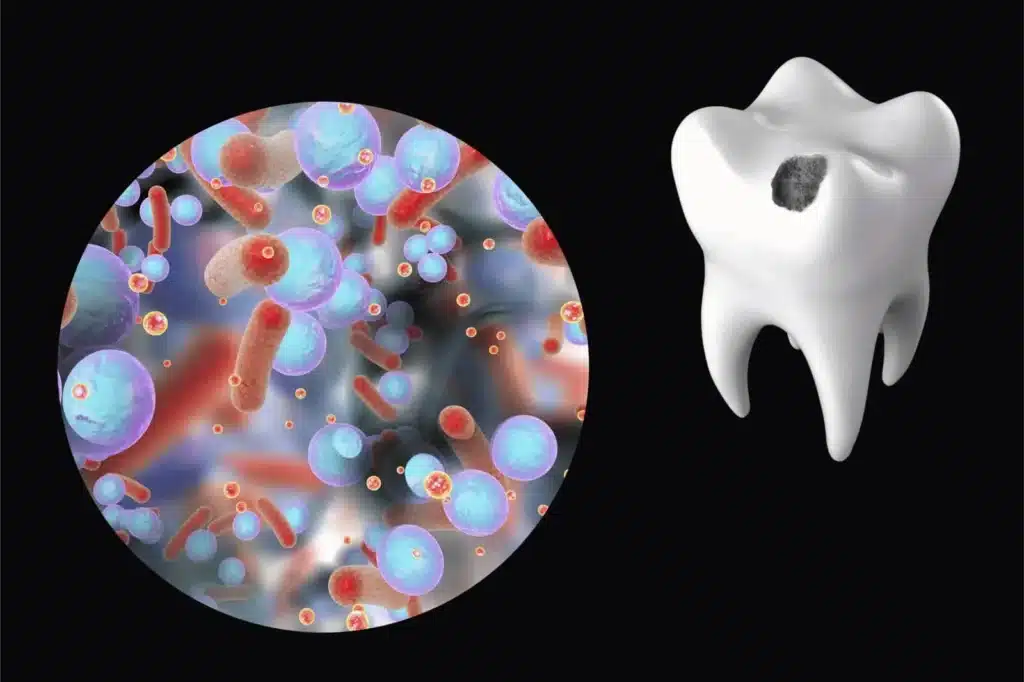Toothache can often be challenging and unbearable. Several factors can cause tooth pain, but if left untreated, it can lead to severe infections. Read more to know the root causes of tooth pain and treatment methods.
What is a Toothache?
A toothache is not just a simple ache; it’s a complex sensation ranging from annoying twitches to unbearable pain. It occurs when the dental pulp, the innermost part of the tooth, becomes irritated or inflamed due to various causes.
Types of Toothaches
Dull, Throbbing Pain: A persistent, dull, throbbing pain is a common toothache type. It often signifies an underlying issue like dental decay or a dental abscess. This pain can be relentless, urging individuals to seek relief.
Sharp, Shooting Pain: A sudden, sharp, shooting pain can be a jolt of agony. It often occurs when hot, cold, sweet, or acidic substances contact an exposed nerve. It’s a clear sign that something is amiss.
Sensitivity to Hot and Cold: Tooth sensitivity to hot or cold temperatures can be a precursor to a full-blown toothache. It’s characterized by a sharp twinge or discomfort when consuming hot coffee or ice-cold drinks.
Persistent or Intermittent Pain: Toothaches may be persistent, throbbing continuously, or intermittent, coming and going. The latter can be particularly frustrating as it gives moments of relief followed by sharp bouts of pain.
Radiating Pain to the Ear or Jaw: Sometimes, a toothache doesn’t restrict itself to the affected tooth; it radiates, causing discomfort in the ear, jaw, or head. This radiation often indicates a more severe issue that requires attention.
Symptoms
Symptoms of tooth pain can be:
- Pain Intensity and Location
- Swelling and Redness
- Fever and Headache
- Difficulty in Chewing or Biting
- Foul Taste or Odor:
Causes of Toothaches
Dental Decay (Cavities)
Tooth decay, scientifically known as dental caries, begins when the enamel, the protective layer of the tooth, gets damaged due to acid-producing bacteria. These tiny culprits feast on sugars from the food we consume, leading to the formation of acids. These acids then erode the enamel, creating tiny holes or cavities.
Dental plaque, a sticky film of bacteria, plays a pivotal role in cavity formation. These bacteria thrive on leftover food particles and produce acids that attack tooth enamel. Without proper oral hygiene, plaque builds up, escalating the risk of cavities.

Gum Disease (Periodontitis)
Gingivitis is the initial stage of gum disease, marked by inflamed, bleeding gums. If left untreated, it can progress to periodontitis, a more severe condition where the infection extends deeper into the supporting structures of the teeth. Periodontitis can result in gum recession, exposing sensitive tooth roots.
As gums recede, tooth roots become exposed, lacking the protective enamel. It exposes the dentin, a porous tissue, leading to heightened tooth sensitivity to hot and cold temperatures and even air.
Dental Trauma
Accidents or biting on complex objects can lead to fractured or chipped teeth. These injuries can expose the inner, sensitive layers of the tooth, causing intense pain.
Dental work, such as fillings and crowns, may become dislodged or damaged over time. It can leave the tooth vulnerable to irritation, leading to discomfort.
Impacted Wisdom Teeth
Wisdom teeth, also known as third molars, often struggle to emerge correctly in the mouth. It can result in pain, pressure, and discomfort in the back of the mouth, known as wisdom tooth pain.
Sinus Infection
A sinus infection can sometimes mimic toothache symptoms, particularly in the upper back teeth. The proximity of the sinuses to the upper jaw can lead to referred pain, making it challenging to pinpoint the source of discomfort.
Risk Factors
Poor Oral Hygiene
- Skipping daily oral care routines like brushing and flossing allows harmful bacteria to flourish, increasing the likelihood of toothaches.
Diet and Nutrition
- Diets rich in sugary foods and drinks provide a feeding ground for cavity-causing bacteria.
Smoking and Tobacco Use
- Tobacco products stain teeth and hinder blood flow to the gums, impairing their ability to fight infections.
Dental Procedures
- Some dental procedures, like root canals or extractions, may cause temporary discomfort. However, persistent pain after such treatments should raise concern.
Prevention and Care
A toothache can be a real pain, but there are steps you can take to keep those pangs at bay. Let’s explore the essential aspects of preventing toothaches and maintaining your oral well-being:
Brushing and Flossing
Your first line of defense against a toothache begins with your daily oral care routine. Brushing your teeth twice daily with fluoride toothpaste helps remove plaque and prevent cavities. Remember to use a soft-bristle toothbrush to avoid damaging your enamel.
Flossing complements brushing by reaching those tight spaces between teeth where bacteria often hide. It helps prevent gum disease, a potential cause of toothaches.
Diet Modifications
Your diet plays a crucial role in your oral health. Incorporate calcium-rich foods like dairy products and leafy greens to strengthen your teeth.

Snacking on crunchy fruits and vegetables like apples and carrots can help clean your teeth naturally. Limit sugary and acidic foods and beverages, as they can erode enamel.
Avoiding Tobacco
Smoking and tobacco stains your teeth and increase the risk of gum disease and oral cancer. Quitting tobacco can significantly improve your oral health and reduce the chances of experiencing a toothache.
Regular Dental Check-ups
Remember to underestimate the power of regular dental check-ups. Visiting your dentist twice yearly allows them to detect and address potential dental problems before they escalate into painful toothaches. Routine cleanings also remove stubborn plaque and tartar.
Managing Stress
Believe it or not, stress can contribute to toothaches. Stress-induced teeth grinding, known as bruxism, can wear down your teeth and lead to discomfort. Your dentist can recommend solutions like a mouthguard to mitigate this issue.
Treatment Options
When a toothache strikes, knowing your options for relief is essential. You need to know that.
Pain Relief Medicines
Pain relievers like ibuprofen or acetaminophen can temporarily relieve a toothache. Follow the recommended dosage and consult a healthcare professional if the pain persists.
Prescription Medications
Your dentist may prescribe stronger pain medications for more severe toothaches to manage the discomfort effectively.
Dental Procedures
In cases of cavities, fillings can repair the damaged tooth. More extensive decay may require a root canal to remove infected pulp. In some instances, a tooth extraction may be necessary.
Home Remedies
Home remedies can provide relief. Rinsing with warm salt water can reduce inflammation, while clove oil can numb the area. Ice packs and tea bags can also soothe toothache discomfort.
When to See a Dentist
If your toothache persists, worsens, or is accompanied by symptoms like fever or swelling, it’s crucial to seek professional help. These may be indicators of underlying dental issues that require the expertise of a dentist to resolve.
Conclusion
Hope now you know the types and root causes of toothache. Always follow the instructions to help relieve the pain. Consult your dentist in case of emergency to avoid any serious complications. Contact Dentalsway for more information on how to manage dental pain.


